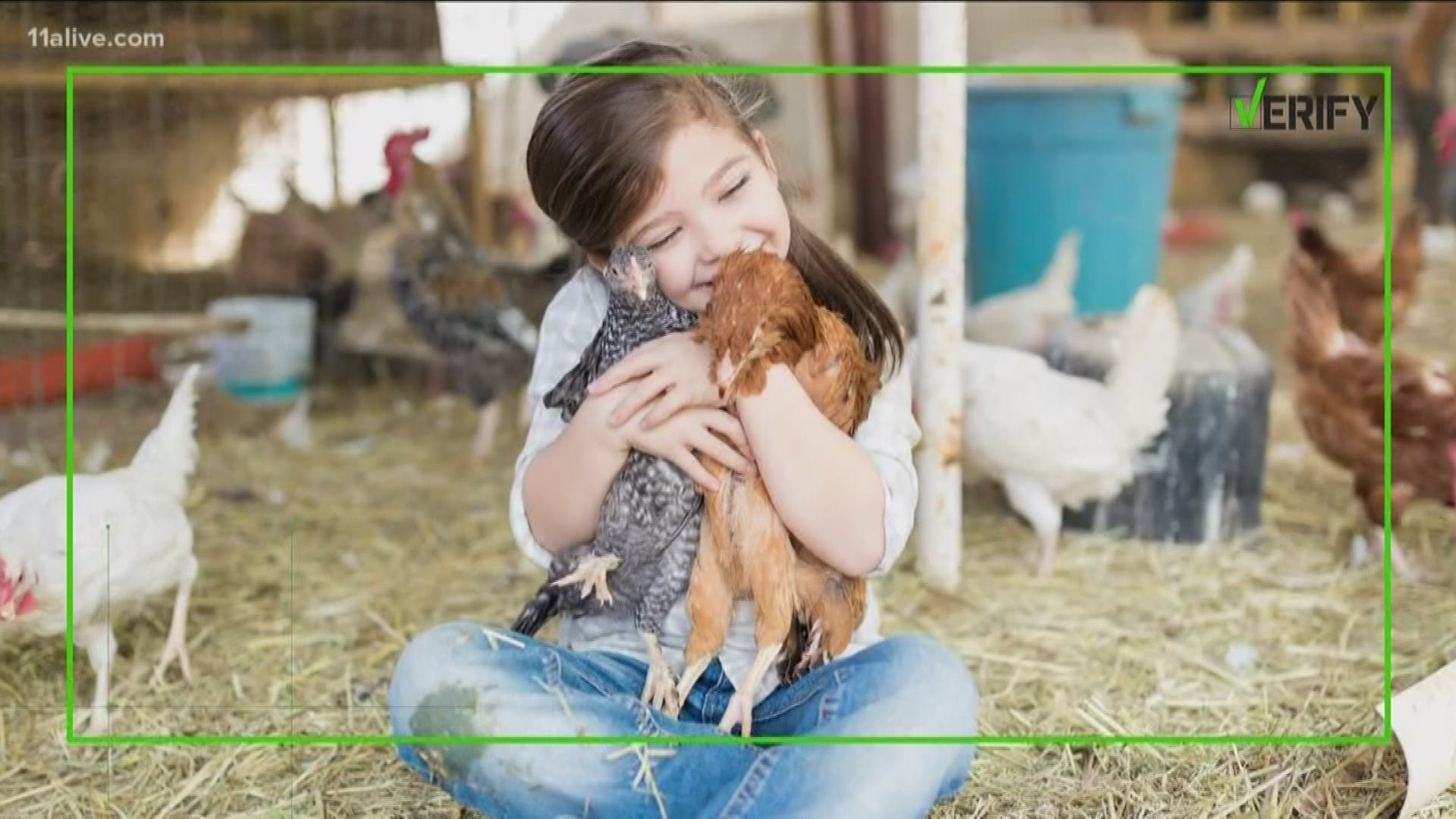It's a warning that's hatching headlines across the country.
The Centers for Disease Control and Prevention is investigating outbreaks of salmonella infections linked to backyard poultry, with 13 cases documented in Georgia.
But it's part of the CDC's warning, 'Don't kiss chickens,' that's prompted more than 400 comments on our 11Alive Facebook page. Some online wondering whether this is really an issue, prompting the 11Alive Verify team to take a closer look.
As a matter of fact, such warnings have been shared by the CDC before.
According to the CDC, two thirds of those who got sick in the current outbreak reported contact with chicks and ducklings. However, a CDC spokesperson said data is not yet available on the breakdown of how exposure occurred for this outbreak, but the CDC has studied these outbreaks before.
A 2016 study published in Emerging Infectious Diseases, analyzed more than 50 previous salmonella outbreaks linked to backyard poultry from 1990 to 2014. The median age of patients?9 years old. .
According to a CDC spokesperson, primary findings of the analysis include the following:
Among respondents with baby poultry exposure, 74 percent reported that exposure occurred at the home. Approximately 76 percent of respondents reported touching baby birds, 61 percent reported touching the cage/coop of the baby birds, 49 percent reported snuggling baby birds, and 13 percent reported kissing baby birds.
As a result, we can verify there are indeed documented cases of people who've kissed chickens and gotten sick, but it's usually baby chicks and ducklings, rather than full-grown birds. Overall, the number of cases from sharing a peck with the baby birds is small.
Nevertheless, the warning from the CDC is very real: don't kiss backyard poultry or snuggle them and then touch your face or mouth, and always wash your hands right after touching the birds or anything in the areas where they live and roam.
ALSO READ:

